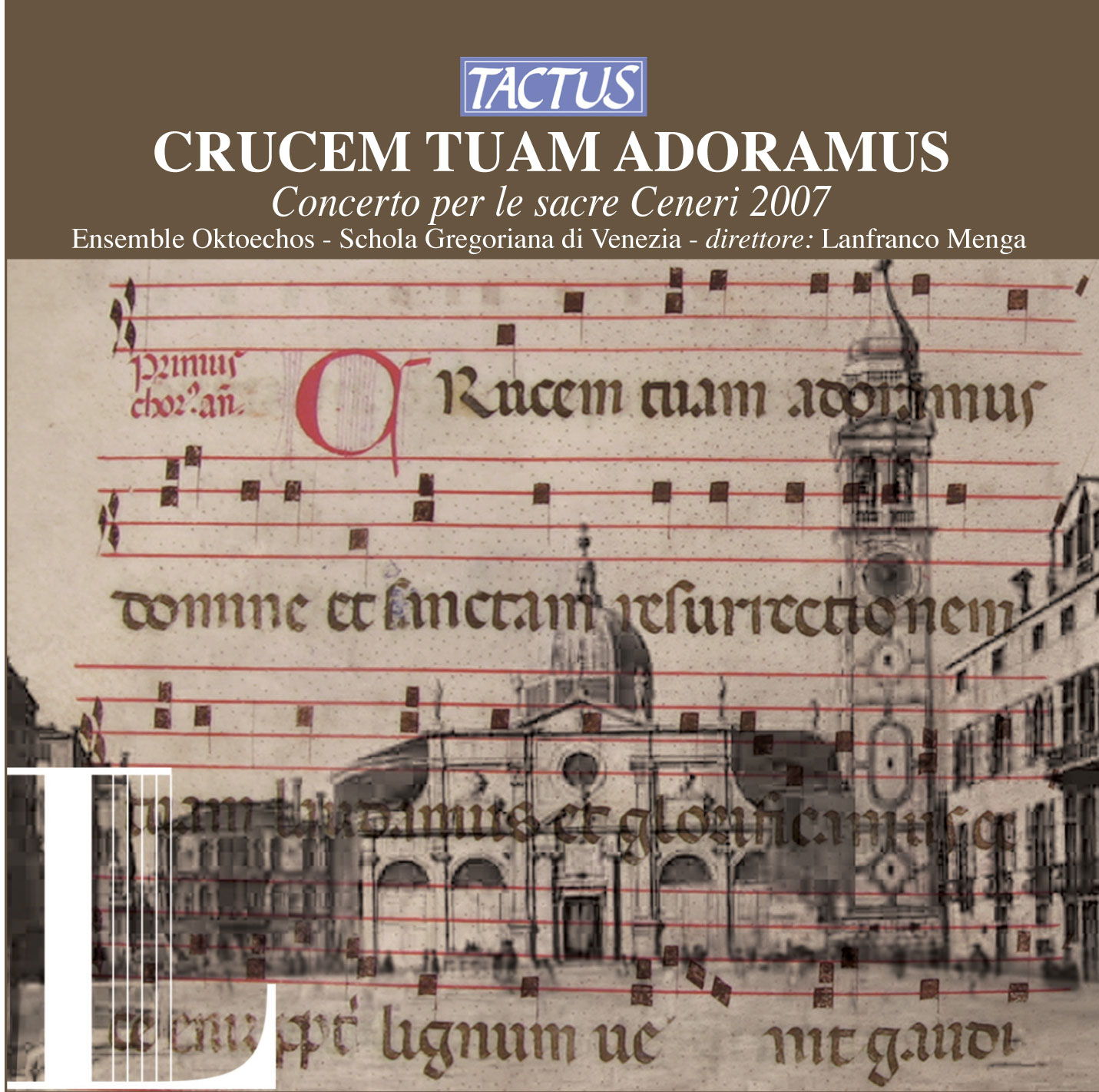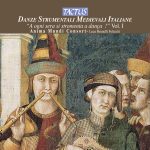CANTI GREGORIANI
A significant characteristic of modal liturgical song, which tends to be monodic, is that it manifests, reinforces and completes the meaning of texts, by intensifying the sound.
It is a characteristic that can easily be heard in the works in this programme, especially in those in the Roman liturgical tradition, such as introitus Misereris omnium, domine and the responsory Media vita in morte sumus, and the Ambrosian Lucernarium Dirigatur oratio mea, from the books of Wisdom and Psalms.
It is also evident in the conduction or processional songs unrelated to the common repertory, such as the lament for two voices Pange melos lacrimosum (Florence, Medicea Laurenziana, Pluteus 29.1) and the monodic Bonum est confidere (Burgos, codex Las Huelgas), from Psalm 117, or even the interpolation melodies, such as the trope to the Kyrie Qui passurus (Rome, Vallicelliana, C.13) for the Tenebrae, that recalls the cantillation of the Hebrews: all these songs comment and amplify the words by means of compositional techniques that transform the sounds of the words into melodies.
This concept does not change with the polyphony expressed in the motet O homo considera – O homo de pulvere – Filiae Ierusalem (Oxford, New College Library, 363) where other voices sing over the liturgical verses sung by the tenor, to comment simultaneously on the fragility of the glories of the world.
The same thing happens in the two villancicos from the Hiberian peninsular, Dí, por qué mueres en cruz and Dios te salve, Cruz preçiosa (Madrid, Biblioteca de Palacio, 1335), where the polyphony enriches the text and music for the devotion to the cross.
The declamation of the word was to become the characterising trait of the liturgical-musical repertory of Venice and the surrounding area, that can now be heard, centuries later, after the critical edition by Giulio Cattin (Bologna, 1972): the Processio in die veneris sancti for two voices, composed by Johannes de Quadris, musicus in San Marco at the beginning of the 15th century and one of the first in which God’s sufferings are sung with the polyphony.
The music, performed here by the vocal ensembles “Oktoechos” and “Schola Gregoriana di Venezia”, is the fruit of director Lanfranco Menga’s familiarity with the liturgical texts and the relative intonations.
This new interpretation entailed the recovery of the repertory and adherence to philological requirements, but also required a willingness to experiment in a sound ambit beyond the functionalism that conditions everyday life, to rediscover an aspect of existence where contradictions and contrasts are solved harmoniously.
Tracklist
Anonymous
Media vita in morte sumus [Domenica di Settuagesima]
1 - Media vita in morte sumus [Domenica di Settuagesima] (5:50)
Pange melos lacrimosum [Florence, Medicea Laurenziana, Puteus 29.I]
2 - Pange melos lacrimosum [Florence, Medicea Laurenziana, Puteus 29.I] (3:12)
Misereris omnium, domine [Feria IV delle Ceneri]
3 - Misereris omnium, domine [Feria IV delle Ceneri] (4:24)
Bonum est confidere [Burgos, codex Las Huelgas]
4 - Bonum est confidere [Burgos, codex Las Huelgas] (3:16)
Kyrie, "Qui passurus" [Rome, Vallicelliana, C.13]
5 - Kyrie, "Qui passurus" [Rome, Vallicelliana, C.13] (3:26)
Dirigatur oratio mea [Lucenario ambrosiano, Venerdì santo]
6 - Dirigatur oratio mea [Lucenario ambrosiano, Venerdì santo] (5:27)
O homo considera / O homo de pulvere / Filiae Ierusalem [Oxford, New College Library, 363]
7 - O homo considera / O homo de pulvere / Filiae Ierusalem [Oxford, New College Library, 363] (3:00)
Johannes de Quadris,
Processio in die veneris sancti
8 - Processio in die veneris sancti (15:35)
Anonymous
Di, por que mueres en cruz [Cancionero musical de Palacio, 1490-1530]
9 - Di, por que mueres en cruz [Cancionero musical de Palacio, 1490-1530] (2:41)
Dios te salve, Cruz preciosa [Cancionero musical de Palacio, 1490-1530]
10 - Dios te salve, Cruz preciosa [Cancionero musical de Palacio, 1490-1530] (3:42)
- Composer: CANTI GREGORIANI
- Performers: Ensemble Oktoechos: Letizia Butterin, Monica Falconio, Claudia Grimaz, Elena Modena · Schola Gregoriana di Venezia: Massimo Bisson, Riccardo Drusi, Antonio Furlan, Nicola Lamon, Fabrizio Mason, Jonathan Pradella, Marco Repeto · Direttore: Lanfranco Menga
- Musicological Text: Antonio Lovato
- Historical Period: Middle Ages
- Code: TC 210001
- Edition: April 2008
- Barcode: 8007194103649
- Set: 1
- Total tracks: 10
- Total duration: 00:50:28
- Notes: 5 Stars Prize from «Musica e dischi»






